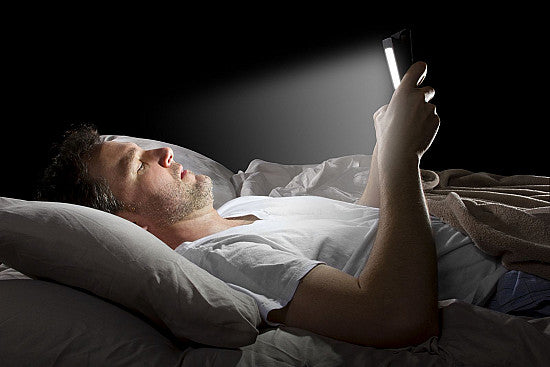In our fast-paced modern world, a good night's sleep often feels like a luxury rather than a necessity. Yet, the quality of our rest significantly impacts our physical and mental well-being. Many interconnected factors can stand between you and restorative slumber. Let's delve into five of the most common culprits.
1. The Glare of Screens and Irregular Schedules
One of the biggest modern challenges to sleep is excessive screen time, especially before bed. The blue light emitted from smartphones, tablets, and computers actively suppresses melatonin production, the crucial hormone that signals to your body it's time to wind down. This disruption makes it harder to fall asleep and reduces the quality of the sleep you do get. Compounding this issue is an inconsistent sleep schedule. Our bodies thrive on routine; going to bed and waking up at different times confuses your internal body clock, or circadian rhythm, leading to chronic fatigue and difficulty sleeping even when you have the chance.
2. Your Diet's Hidden Impact: Caffeine and Alcohol
What you consume throughout the day, particularly in the evening, can dramatically affect your sleep. Caffeine, a stimulant, can linger in your system for hours, making it difficult to relax and fall asleep if consumed too late. Similarly, alcohol, while it might initially make you feel drowsy, actually fragments sleep later in the night. It disrupts the natural sleep cycles, particularly REM sleep, preventing the deep, restorative rest your body needs.
3. The Unseen Influence of Your Sleep Environment
Your bedroom itself plays a critical role. A key element is light exposure. Even subtle light from a streetlamp, a charging phone, or an alarm clock can signal to your brain that it's daytime, disrupting your sleep. For optimal rest, your sleep space should be as dark as possible. Additionally, room temperature is crucial. Most sleep experts recommend a cool bedroom, typically between 60-67 degrees Fahrenheit (15-19 degrees Celsius). A room that's too hot or too cold can make it difficult to comfortably drift off and stay asleep.
4. The Disturbance of Noise
The sounds around you can also be significant sleep disruptors. While some people can adapt to background noise, sudden or loud noises—be it traffic, noisy neighbors, or even a snoring partner—can easily jolt you awake or prevent you from entering deeper, more restorative sleep stages. Creating a quiet environment, perhaps with the help of earplugs or white noise, can be incredibly beneficial.
5. The Internal Struggle: Health Conditions and Stress
Sometimes, the obstacles to good sleep come from within. Underlying health conditions like sleep apnea (where breathing repeatedly stops and starts), restless legs syndrome, chronic pain, or even acid reflux can severely fragment sleep and leave you feeling unrested. Beyond physical ailments, stress and anxiety are perhaps the most common internal barriers. The constant worrying and mental chatter that accompany high stress levels make it incredibly difficult to quiet your mind before bed, keeping you in a state of heightened arousal that actively fights against sleep.
Understanding these factors is the first step toward reclaiming your sleep. By making conscious adjustments to your lifestyle, environment, and addressing internal issues, you can significantly improve your chances of achieving the consistent, quality rest you deserve.

